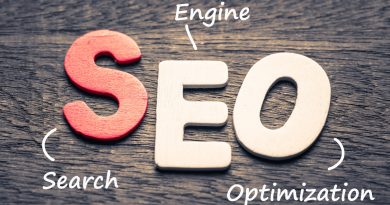5 Key Benefits of Recommendation Engines
The international retail ecommerce market has expanded extensively in recent years. Product recommendation is one of the most helpful features that attract customers and ensures a continual flow of repeat business. When it comes to vying for the attention of buyers in this competitive market, it’s essential to helping companies grow.
Before understanding the key benefits of recommendation engines, it’s important to learn: What is a recommendation engine? It’s essentially a tool that allows business owners to recommend appropriate products to clients instantly. It uses cutting-edge algorithms, machine learning, and AI to streamline the shopping experience for customers and help companies effectively sell their products.
What Is A Recommendation Engine?
Recommendation engines use filtering systems that anticipate and provide the products a consumer is likely to buy. Ecommerce sites such as Amazon, eBay, and Etsy, use unique algorithms to better match customers with the goods they likely find appealing. Recommendation engines examine user activity and advertise products that will be most helpful to them. If you’re specifically interested in finding products on eBay, you can utilize the ZIK Analytics tool for finding products on eBay to enhance your search and product discovery process.
Benefits of Recommendation Engines
Recommendation engines can be used in various ways on ecommerce websites or platforms. They offer a variety of benefits for both customers and businesses, including:
Benefits for customers:
- Delivering relevant and customized content
- Improving customer satisfaction
Benefits for businesses:
- Driving traffic to company websites
- Converting visitors to customers
- Increasing revenue
1. Delivering Relevant and Customized Content
Creating tailored and helpful content is one of the best strategies for any brand to fulfill client expectations. Brands can personalize the client experience with the help of recommendation engines by offering products that are useful for them.
Recommendation engines examine customers’ activities to provide suitable product recommendations. Data is gathered in real time, so the program adapts as consumer preferences or purchasing patterns change.
2. Improving Customer Satisfaction
Product recommendation engines do an excellent job of making customers feel satisfied during and after their search sessions. The algorithms evaluate user behavior based on many variables, such as keywords used, prior purchases made, and more to determine client interests and preferences. As a result, customers can quickly view relevant products when they shop. Customers find what they want more efficiently when suitable suggestions are provided at the right time.
3. Driving Traffic
Recommendation engines help boost website traffic through targeted ads and customized messaging. This tailored approach to advertising helps generate not only higher volumes of traffic to company websites, but also traffic that’s more likely to convert to sales.
4. Helping Convert Visitors to Customers
By using data from numerous channels, including email, desktop and mobile devices, recommendation engines help businesses develop a consistent brand experience. They provide customers with regular touchpoints with a brand, keeping the most relevant companies front of mind until a customer is ready to purchase.
5. Increased Revenue
The bottom line is recommendation engines help boost sales growth for ecommerce websites. These engines allow online retailers to provide shoppers with more options. As a result, they contribute to more purchases.
Offering customers recommendations that are tailored to their needs helps companies establish solid and enduring relationships with them. These personalized interactions promote persistent brand loyalty and increased revenue.
Conclusion
Recommendation engines are crucial to the success of any business. As the technology continues to advance their commercial significance will only continue to grow.




